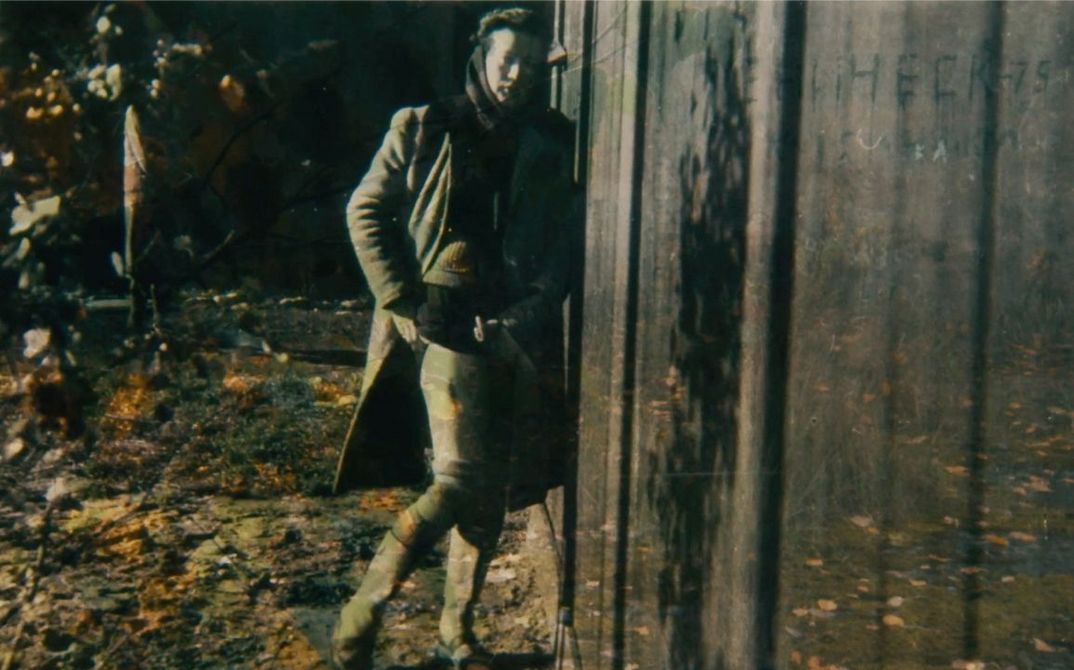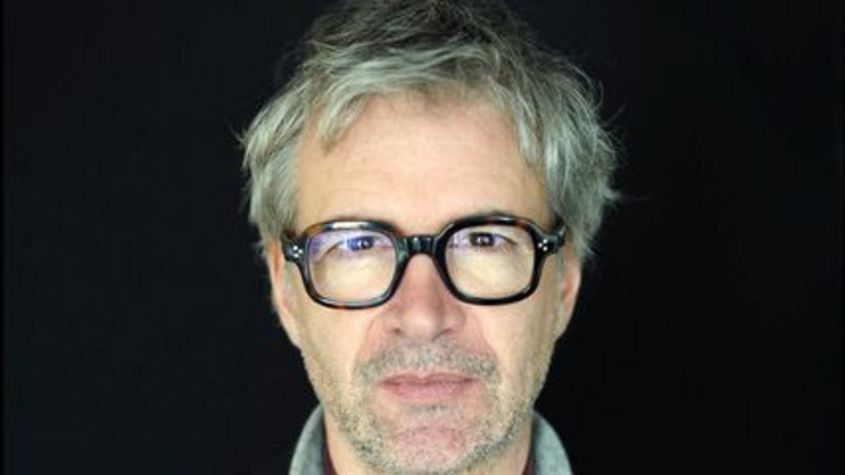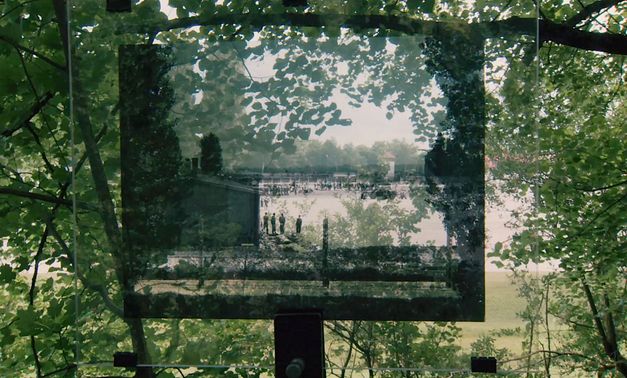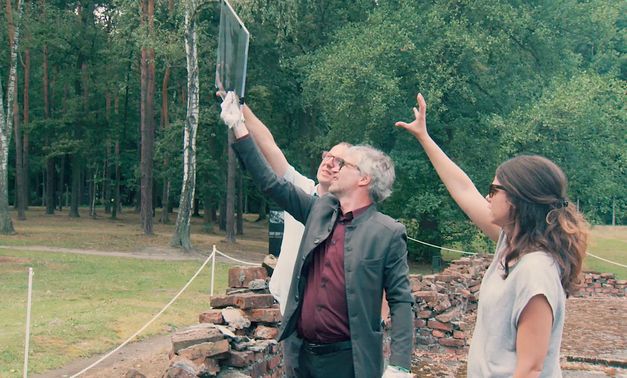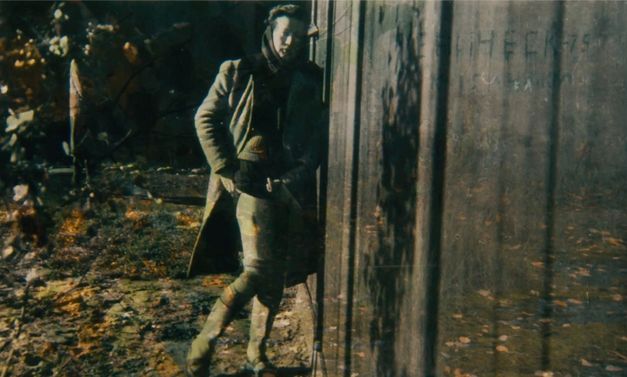14.06.2021 21:30 Eng. subtitles Open Air Kino HKW (Tickets)
Although they were risking their lives by doing so, prisoners in concentration and extermination camps took photographs and even managed to smuggle canisters of film beyond the camp gates. Yet their hopes of galvanising the global public into action would remain unfulfilled.
À PAS AVEUGLES examines these photographs with a calm, sober gaze. Director Christophe Cognet travels to Ravensbrück, Dachau and Auschwitz-Birkenau, amongst other sites, carrying black-and-white glass plate prints in his luggage. The images show, for example, an infirmary, a roll call area, the maimed limbs of female prisoners. Even the moments immediately before and after the industrialised murders were captured by Greek prisoner Alberto Errera, albeit in shadowy form.
The historical images and their present-day locations are overlaid on multiple occasions to ghostly effect: when visitors to the memorial sites pass behind the glass plates, it’s as if the individuals depicted have broken free from their fixed positions in black and white, setting themselves in motion as coloured spectres. (Cristina Nord)
Christophe Cognet, born in 1966 in Marseille, France. After studying film, his work as an author and director has frequently been concerned with the Nazi concentration and extermination camps, including PARCE QUE J'ÉTAIS PEINTRE, L'ART RESCAPÉ DES CAMPS NAZIS (2014). His book Éclats (2019) served as the inspiration for À PAS AVEUGLES.
Production Raphaël Pillosio. Production company L'atelier documentaire (Bordeaux, France). Written and directed by Christophe Cognet. Cinematography Céline Bozon. Editing Catherine Zins. Sound design Nathalie Vidal. Sound Marc Parisotto. Assistant director Ada Gudzinski. Production manager Maria Bicharska. Executive producer Raphaël Pilosio. Co-producer Robert Cibis. Co-production Oval Media. With Christophe Cognet, Tal Bruttmann, Corinne Halter.
World sales mk2 Films
Films: 1997: Gongonbili, de l’autre côté de la colline (63 min.). 2000: L’affaire Dominici par Orson Welles (52 min.). 2002: La planète perdue (51 min.). 2004: L’atelier de Boris (76 min.). 2005: Quand nos yeux sont fermés (55 min.). 2008: Les anneaux du serpent (45 min.). 2014: Parce que j'étais peintre, l'art rescapé des camps nazis / Because I was a Painter: Art that survived Nazi camps (104 min.). 2017: Sept mille années (15 min.).
